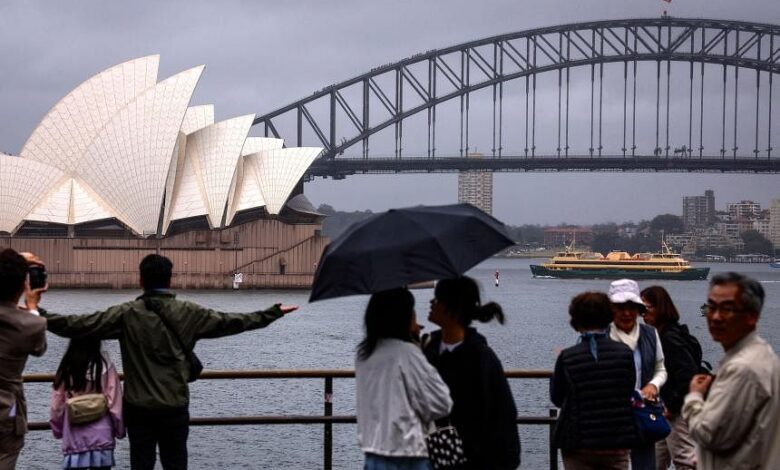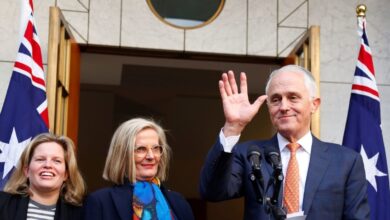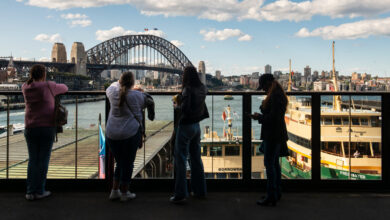Australia’s economy isn’t in recession, but Australians are

SYDNEY – Australia’s economy slowed in the final three months of 2023 and a per capita recession deepened as higher rates and rising living costs dragged on household spending.
Gross domestic product (GDP) advanced 0.2 per cent, easing from an upwardly revised 0.3 per cent in the prior quarter, Australian Bureau of Statistics (ABS) data showed on March 6. From a year earlier, the economy grew 1.5 per cent, matching estimates, as did the quarterly change.
The annual result was the weakest since the final quarter of 2000 outside the pandemic, and below the decade average of 2.4 per cent. In per person terms, GDP fell 0.3 per cent from the third quarter and was 1 per cent lower than a year earlier, the deepest downturn since 1991, also outside the Covid era, according to Bloomberg Economics.
The slowdown will likely increase pressure on the Reserve Bank of Australia (RBA) to begin an easing cycle in 2024, after it left rates unchanged at its last two meetings while refusing to rule out a further hike.
“Household consumption growth continues to struggle against tight policy settings,” said Oxford Economics Australia macroeconomic forecasting head Sean Langcake. “The Australian economy is in the midst of a cyclical low point, with policy settings and fast inflation curbing growth. Indeed, while growth has stayed in positive territory, it has slowed in each quarter.”
The March 6 data showed government spending and private business investment were the main drivers of growth, outpacing household consumption.
Government expenditure advanced 0.6 per cent in the fourth quarter, adding 0.1 percentage point to GDP. Households salted away more cash, with the savings ratio climbing to 3.2 per cent from an upwardly revised 1.9 per cent, while their spending was little changed.
ABS head of national accounts Katherine Keenan said households raised their spending on essential items such as electricity and rent but “wound back” discretionary expenditure including hotels, cafes and restaurants.
The RBA predicts annual economic growth will trough at 1.3 per cent in the middle of 2024, before regaining momentum as its estimates assume a lower cash rate from then on.
Treasurer Jim Chalmers said the economy’s ability to generate growth is still “significant” given high interest rates locally and a challenging global backdrop.
“Addressing inflation is still our primary concern, but these numbers show that the balance of risks in our economy are shifting from inflation to growth,” he said. BLOOMBERG





